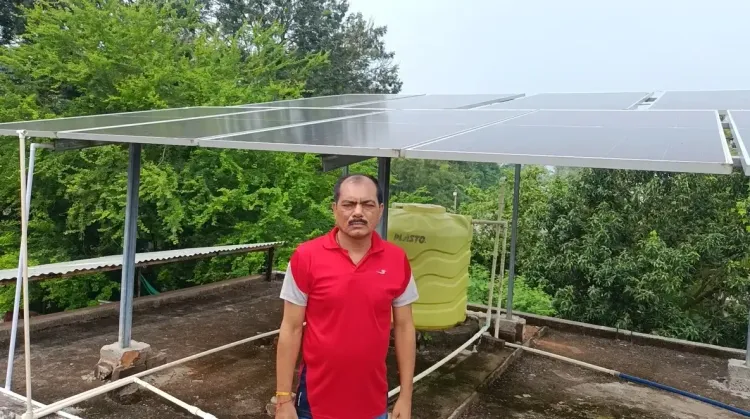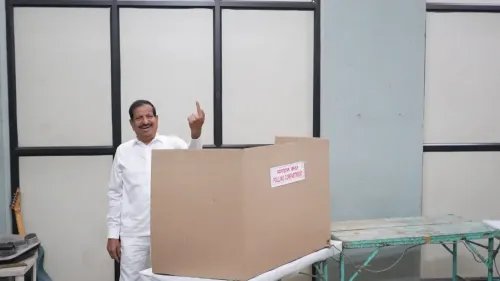How is Chhattisgarh Benefiting from the PM Surya Ghar Yojana?

Synopsis
Key Takeaways
- Subsidies of up to Rs 78,000 available for solar installations.
- 300 units of free electricity per month for eligible households.
- Significant savings on electricity bills.
- Encouraging progress in clean energy adoption across various states.
- Aims to benefit 1 crore households by 2026–27.
Gariyaband (Chhattisgarh), Sep 24 (NationPress) The PM Surya Ghar: Muft Bijli Yojana, a major initiative launched by the Central Government, seeks to power 1 crore households nationwide through rooftop solar installations. With enticing subsidies available to motivate citizens toward residential solar use, a beneficiary in Chhattisgarh has shared his positive experience.
The scheme's essential objectives and advantages include free electricity, offering 300 units of complimentary power each month to qualifying households, and significant reductions in power bills. By adopting rooftop solar panels, families can greatly lessen their reliance on grid electricity, resulting in considerable savings. Moreover, attractive subsidies provide financial assistance of Rs 60,000 for installations up to 2 kW, Rs 30,000 for systems above 3 kW, and up to Rs 78,000 for systems of 1 kW or more.
A beneficiary from Chhattisgarh expressed his relief from hefty electricity bills.
In an interview with IANS, Ramakant Sinha, a resident of Panduka village in the Gariyaband district, explained how the scheme has transformed his household expenses. He installed a 5 kW solar system on his rooftop through the initiative and now enjoys almost zero electricity bills.
"Previously, I was paying between Rs 2,000 to Rs 3,000 each month for electricity. After installing the solar system with the PM Surya Ghar Yojana, I no longer have to worry about these costs. I am incredibly grateful to Prime Minister Narendra Modi for this initiative," he stated.
The PM Surya Ghar: Muft Bijli Yojana was officially inaugurated by Prime Minister Narendra Modi on February 15, 2024. This initiative is set to cover up to 40% of the costs for rooftop solar panel installations through subsidies and aims to benefit over 1 crore households by 2026–27, while also assisting the government in saving an estimated Rs 75,000 crore annually in electricity expenses.
Progress is promising across various states, with Chandigarh and Daman & Diu achieving 100% solar rooftop coverage on government buildings, showcasing a model for clean energy adoption. States like Rajasthan, Maharashtra, Gujarat, and Tamil Nadu are also excelling in implementation, significantly contributing to national goals.










